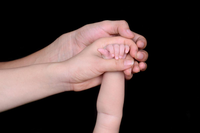ENEWS FROM CHILD CARE RESOURCE SERVICE
To subscribe to the provider email newsletter, please fill out this form: https://groups.webservices.illinois.edu/subscribe/136254
OUR OFFICE IS STILL CLOSED TO THE PUBLIC
 Please note, the CCRS OFFICE IS STILL CLOSED TO THE PUBLIC. At this time, only University students and staff are permitted in the building. Please, do not attempt to enter the building with the expectation of being able to enter our office. This will not happen. We are trying to determine how to open within University guidelines while keeping our visitors and staff safe. We appreciate your continued patience.
Please note, the CCRS OFFICE IS STILL CLOSED TO THE PUBLIC. At this time, only University students and staff are permitted in the building. Please, do not attempt to enter the building with the expectation of being able to enter our office. This will not happen. We are trying to determine how to open within University guidelines while keeping our visitors and staff safe. We appreciate your continued patience.
To drop off forms, use the CCRS Drop Box located on the front door of Bevier Hall on Goodwin Avenue. The drop box inside Bevier Hall is closed; only staff and students are allowed inside buildings.
To contact staff, please call 217-333-3252 or 800-325-5516 or submit questions or forms through email at ccrs@illinois.edu or fax at 217-333-2147
BIRTH TO FIVE ILLINOIS INITIATIVE NOW LAUNCHED
 Governor JB Pritzker established an audacious goal for Illinois to “become the best state in the nation for families raising young children, with the nation’s best early childhood education and child care.” As recommended to the Governor by the Early Childhood Funding Commission, one important step that will bring Illinois closer to achieving this goal is the establishment of regional councils across the State to lift up the voices of families, providers, and community members. As a part of the charge of the Early Childhood Transformation Team that was created to carry forth several of the approved recommendations from the Commission report, the State has also partnered with the Illinois Network of Child Care Resource and Referral Agencies (INCCRRA) to launch a statewide, early childhood, regional and community system, which has been named: Birth to Five Illinois. Birth to Five Illinois’s website has officially launched – www.birthtofiveil.com! You can find links/icons to our Facebook, Twitter, Instagram, and LinkedIn at the bottom of any website page. Visit the site to meet our growing team and learn more about our goal of creating Birth to Five Action Councils in each of 39 regions, built upon the Illinois State Board of Education (ISBE) Regional Offices of Education (ROE) statewide structure but operating independently. The Birth to Five Action Councils will include parents and families, Head Start and child care providers, early learning educators and advocates, school district and municipal officials, and business leaders who will be tasked with identifying and addressing the early childhood service needs in each region. Utilizing family and provider voice, information gathered by these Councils will inform local and State policy around birth-to-five programs over the next decade, and beyond. Join us for our Birth to Five Illinois virtual kick-off events:English Sessions
Governor JB Pritzker established an audacious goal for Illinois to “become the best state in the nation for families raising young children, with the nation’s best early childhood education and child care.” As recommended to the Governor by the Early Childhood Funding Commission, one important step that will bring Illinois closer to achieving this goal is the establishment of regional councils across the State to lift up the voices of families, providers, and community members. As a part of the charge of the Early Childhood Transformation Team that was created to carry forth several of the approved recommendations from the Commission report, the State has also partnered with the Illinois Network of Child Care Resource and Referral Agencies (INCCRRA) to launch a statewide, early childhood, regional and community system, which has been named: Birth to Five Illinois. Birth to Five Illinois’s website has officially launched – www.birthtofiveil.com! You can find links/icons to our Facebook, Twitter, Instagram, and LinkedIn at the bottom of any website page. Visit the site to meet our growing team and learn more about our goal of creating Birth to Five Action Councils in each of 39 regions, built upon the Illinois State Board of Education (ISBE) Regional Offices of Education (ROE) statewide structure but operating independently. The Birth to Five Action Councils will include parents and families, Head Start and child care providers, early learning educators and advocates, school district and municipal officials, and business leaders who will be tasked with identifying and addressing the early childhood service needs in each region. Utilizing family and provider voice, information gathered by these Councils will inform local and State policy around birth-to-five programs over the next decade, and beyond. Join us for our Birth to Five Illinois virtual kick-off events:English Sessions
- February 1, 2, and 3, 2022 | 6:00-7:00 pm
Spanish Session
- February 5, 2022 | 10:00-11:00 am
You can find your county’s date on the registration landing page. All are welcome to attend! We encourage you to RSVP now, as registration closes on Thursday, January 27th at 4 pm.
 Every two years, CCRS conducts a survey for the training needs of child care providers in our area. Please help us to better serve you by taking a few minutes to complete our 2021 CCRS Training Needs Assessment at:
Every two years, CCRS conducts a survey for the training needs of child care providers in our area. Please help us to better serve you by taking a few minutes to complete our 2021 CCRS Training Needs Assessment at:
https://forms.gle/iuQgxXmc6Z36JdRk9
Day care center directors: please forward this link to your staff. We would like to receive as many perspectives as possible.
We will also have a prize raffle to thank participants for completing the survey. Include your email address in the space provided in the survey if you would like to be included in the raffle.
You can always contact me directly with any training questions at 217-333-7816 or garinger@illinois.edu.
Thank you for all of your support!
Jenny Garinger, Training Coordinator
CHANGES IN ATTENDANCE EXEMPTION AND ELIGIBLE DAYS OF CARE
Due to the increase in COVID-19 cases in Illinois driven by the omicron variant and the effect this has had on child care providers and families, the Illinois Department of Human Services’ (IDHS) Division of Early Childhood (DEC) Child Care Assistance Program (CCAP) will implement the following changes for CCAP services provided in January and February 2022.
1. Licensed family child care homes may apply for a CCAP Attendance Exemption for days when CCAP enrollment is below 50%. This policy is already in effect for licensed child care centers. Licensed centers and homes may submit an Attendance Exemption Request (AER) form to DHS.CCAP.POLICY@illinois.gov. Child Care Certificates that are submitted with an approved AER will be paid for all eligible exempted days. Refer to Policy 02.06.01 and the instructions attached to the AER form (IL 444-4338) for more details.
2. Payments for licensed and license-exempt child care centers will be based on eligible days if the total number of days attended for all children at the center location are at least 50% of the eligible days. Payments for licensed and license-exempt child care home providers will be based on eligible days if the total number of days attended for all children in the family are 50% of the family’s eligible days. All other provision of Policy 06.03.01 still apply.
Please contact this office at 217-333-3252 or email us at ccrs@illinois.edu if you have any questions.
3 FINANCIAL OPPORTUNITIES AVAILABLE THROUGH GRANTS
Strengthen and Grow Child Care Grants (Applications will close on January 28, 2022)
The Strengthen and Grow Child Care Grants will be available to all programs who:
· are licensed as a child care center, child care home, or group child care home.
· were in operation as of March 2021 and continue to care for children today.
· operate full-day and full-year, defined as a program that is open and offering at least eight consecutive hours of care per day, five days per week.
· enrolled 10% or more of the program’s licensed capacity with children in the Child Care Assistance Program (CCAP) during any month in 2020 or 2021 and currently participate in CCAP.
· receive no more than 50% of total early childhood program/site revenue from Early Childhood Block Grant funding (including Preschool for All (PFA) and/or Prevention Initiative (PI)) or Head Start/Early Head Start.
· do not accept a 2022 Child Care Restoration Extension Grant award (programs can apply for either 2022 CCRG Extension or SGCC, but not both)
For more information, go to:
https://www.ilgateways.com/financial-opportunities/strengthen-and-grow-child-care-grants
Child Care Restoration Grants (Round 5 Applications will open in February 2022)
Round 5 2022 CCRG Extension – January, February, March, April, May, and June 2022
· Grants will cover expenses from January, February, March, April, May, and June 2022.
· Grant applications and renewal opt-ins will open in February 2022 and will remain open for three weeks.
· Programs found eligible will be paid 30% of the full monthly grant amount.
· The 6 month grant payment will be made in one check.
· Grant funding is based off a program’s capacity on January 1, 2021.
· Programs must have completed and accepted monthly reporting for all previous funded months to be found eligible for CCRG Extension (Round 5) funding.
· Programs must be open and caring for children by February 25, 2022, to apply.
· Programs must choose between receiving a CCRG Extension grant and a Strengthen and Grow Child Care Grant.
· Programs can apply for either 2022 CCRG Extension or SGCC, but not both.
For more information, go to: https://www.ilgateways.com/financial-opportunities/restoration-grants
Child Care Workforce Bonus (Applications will close on March 11, 2022)
Child Care Workforce Bonuses will be available to all staff in:
· License-exempt relative home providers who were caring for children on the Child Care Assistance Program (CCAP) in March 2021 and continue to care for children today.
· License-exempt non-relative home providers who were caring for children on CCAP in March 2021, continue to care for children today, and have completed all health and safety orientation requirements (including Mandated Reporter and First Aid/CPR) and reported them in the Gateways Registry.
· License exempt centers who were caring for children on CCAP in March 2021, continue to care for children today, and have 50% of staff who have completed all health and safety orientation requirements (including Mandated Reporter and First Aid/CPR) and reported them in the Gateways Registry. License-exempt centers will need to apply through INCCRRA to receive bonuses for their staff.
· Licensed centers and licensed home providers who were caring for children in March 2021 and continue to care for children today. Licensed centers and licensed homes will need to apply through INCCRRA to receive bonuses for their staff.
For more information, go to: https://www.ilgateways.com/financial-opportunities/child-care-workforce-bonus
Zoom Training Opportunities for Child Care Providers
Below is a training that we are offering through Zoom in February:
Thursday, February 10, from 6:30 pm – 8:00 pm, 1.5 Training Hours FREE
Presenter: Jill Duden, Prevention Specialist, Prevent Child Abuse Illinois
This training session will allow participants to gain a deeper understanding of how poverty often reinforces other issues, such as exposure to violence, complex trauma, homelessness, and substance abuse and how living in poverty can impact the most vulnerable families in communities we serve. Participants will explore their own attitudes and beliefs about poverty and the people who are identified as living in poverty. Participants will explore the underlying conditions of poverty and how that impacts our communities. During the training, participants will take part in a poverty simulation. Finally, participants will learn and discuss strategies to change these underlying conditions within their community.
Please install the Zoom app on your device (cell phone, tablet, laptop, desktop) before the day of the training. Go to https://zoom.us/ to sign up. Prior to the meeting date, you will be emailed a link to join the meeting along with a Meeting ID and password. We do encourage you to join the meeting early so the facilitator can help you if you have any technical difficulties. You can also head to the Zoom website at support.zoom.us and watch video tutorials on how the app works.
Contact Jenny Garinger at garinger@illinois.edu or 217-333-7816 to register.
If you prefer to do trainings on your own schedule, remember the Gateways i-learning website is always available: https://courses.inccrra.org. These trainings are Gateways Registry-approved and cover a variety of child development and early childhood education topics. Trainings automatically appear on your Gateways Registry Professional Development Record (PDR), and they are FREE. Be sure to have your Gateways Registry online username and password to login.
JANUARY IS NATIONAL BIRTH DEFECTS AWARENESS MONTH
 The Centers for Disease Control and Prevention (CDC) recognizes January as National Birth Defects Awareness Month. This is a time to raise awareness about birth defects and highlight efforts to improve the health of people living with these conditions across their lifespan.
The Centers for Disease Control and Prevention (CDC) recognizes January as National Birth Defects Awareness Month. This is a time to raise awareness about birth defects and highlight efforts to improve the health of people living with these conditions across their lifespan.
Birth defects are structural changes present at birth that can affect almost any part of the body. Advancements in medicine and surgery have led to better survival. Thankfully, more children born with birth defects grow up to lead full lives. Awareness of birth defects across the lifespan helps provide individuals, parents, and families affected by birth defects the information they need to seek proper care. It also gives healthcare professionals the evidence they need to deliver the best care for patients across all stages of life: before and during pregnancy, as well as in infancy, childhood, adolescence, and adulthood.
Visit https://www.cdc.gov/ncbddd/birthdefects/index.html for more information.
EARLY CHILDHOOD CONSORTIUM FOR EQUITY SCHOLARSHIP PROGRAM
 If you work or have worked in early childhood education and you’re seeking additional credentials and/or a degree in early childhood education, you may be eligible for the Early Childhood Access Consortium for Equity (ECACE) Scholarship Program. The program was created to address the shortage of qualified early childhood educators by encouraging the pursuit of credentials and advancement of already-held degrees in early childhood education, with an aim toward building a strong, well-prepared workforce. Recipients of the scholarship are expected to continue or return to teaching or direct services in the early childhood care and education field in Illinois after they complete their program of study.
If you work or have worked in early childhood education and you’re seeking additional credentials and/or a degree in early childhood education, you may be eligible for the Early Childhood Access Consortium for Equity (ECACE) Scholarship Program. The program was created to address the shortage of qualified early childhood educators by encouraging the pursuit of credentials and advancement of already-held degrees in early childhood education, with an aim toward building a strong, well-prepared workforce. Recipients of the scholarship are expected to continue or return to teaching or direct services in the early childhood care and education field in Illinois after they complete their program of study.
Awards are available for undergraduate study at public and non-profit private 2- and 4-year Gateways-entitled and Early Childhood Access Consortium for Equity member institutions. For students attending community colleges and public universities, the scholarship will cover the applicant’s total cost of attendance for an academic year (including summer) after other financial aid received. Students at participating non-profit private institutions may receive an amount no more than the cost of the most expensive program of study in the early childhood education field at an Illinois public college.
Learn more at https://www.isac.org/students/during-college/types-of-financial-aid/scholarships/ecace.html.

Child sex trafficking, also called the commercial sexual exploitation of children, is the exchange of any sex act with a minor for something of value. And although the latest crime drama may make child trafficking seem like something that would never happen in your family or community, the truth lies much closer to home.
Check out these 3 Things You Didn’t Know About Child Sex Trafficking:
- It’s not just an “overseas” issue; it happens every day in the US. In 2020, the National Center for Missing and Exploited Children (NCMEC) received more than 17,000 possible child trafficking reports across the 50 states.
- Kids are way more likely to live at home and be trafficked, than to be kidnapped into trafficking. Most victims live at home, go to school, and interact with the public on a regular basis.
- Traffickers look for potential victims who are easy to isolate and use their existing vulnerabilities against them. Kids are most vulnerable to trafficking when they lack support networks at home or at school, have experienced previous trauma, or haven’t been taught digital safety practices.
Learn more by reading our latest blog 3 Things You Didn’t Know About Child Sex Trafficking and take our 30-minute training on the Commercial Sexual Exploitation of Children. Use the code CSEC22 at checkout to get this training FREE, all month long!